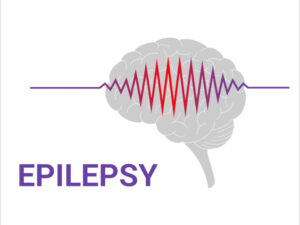Epilepsy is a neurological disorder characterized by recurrent seizures.
Many people with epilepsy have turned to cannabis as an alternative treatment option. In this article, we will explore the relationship between epilepsy and cannabis, including how cannabis can help and in what positive ways.
Cannabis is a plant that contains over 100 chemical compounds known as cannabinoids. The two most well-known cannabinoids are THC (tetrahydrocannabinol) and CBD (cannabidiol).
How does Cannabis help Epilepsy?
Cannabis has been shown to have anticonvulsant properties, meaning it can help reduce the frequency and severity of seizures. The exact mechanism of how cannabis works to prevent seizures is not fully understood, but it is thought to involve the interaction between cannabinoids and the endocannabinoid system, which is a system of neurotransmitters and receptors in the body that helps regulate various functions.
Several studies have shown that CBD, in particular, can be an effective treatment option for epilepsy. In fact, the first FDA-approved medication containing CBD, called Epidiolex, was approved in 2018 for the treatment of two rare forms of epilepsy: Lennox-Gastaut syndrome and Dravet syndrome.
In addition to its anticonvulsant properties, cannabis has been shown to have several other positive effects on epilepsy, including:
Reduced inflammation: CBD has been shown to have anti-inflammatory properties, which can help reduce inflammation in the brain and improve overall brain health.
Improved sleep: Many people with epilepsy experience sleep disturbances, which can exacerbate seizures. Cannabis has been shown to improve sleep quality and duration, which can help reduce seizure frequency.
Reduced anxiety: Anxiety is a common problem in people with epilepsy. CBD has been shown to have anxiolytic (anti-anxiety) properties, which can help reduce anxiety symptoms and improve overall quality of life.
Improved mood: CBD has been shown to have antidepressant properties, which can help improve mood and reduce symptoms of depression, which are also common in people with epilepsy.
While cannabis can be an effective treatment option for epilepsy, it is important to note that it can also have side effects, including: Dizziness, Drowsiness, Dry mouth, Fatigue, Changes in appetite.
It is also important to note that THC, the psychoactive compound in cannabis, can exacerbate seizures in some people.

The Relationship between Epilepsy, Cannabis, and Human Genetics:
Recent research has suggested that the relationship between epilepsy, cannabis, and human genetics is more complex than previously thought. Specifically, it has been found that certain genetic variants may make some individuals more susceptible to the anticonvulsant effects of cannabis.
For example, a study published in the journal Epilepsia in 2015 found that a variant of the gene CACNA1G was associated with a reduced response to the anticonvulsant effects of CBD. Another study published in the same journal in 2017 found that a variant of the gene GPR55 was associated with a reduced response to the anticonvulsant effects of THC.
These findings suggest that individual genetic variation may play a role in determining how effective cannabis is as a treatment option for epilepsy. However, more research is needed to fully understand the relationship between genetics and the efficacy of cannabis as a treatment for epilepsy.
Cannabis has been shown to be an effective treatment option for epilepsy, particularly CBD. It has anticonvulsant properties, reduces inflammation, improves sleep, reduces anxiety, and improves mood. However, it is important to talk to a healthcare provider before starting cannabis as a treatment option, as it can have side effects and may not be appropriate for everyone. With the right guidance and supervision, cannabis can be a valuable addition to the treatment plan for people with epilepsy.
To access our free cannabis dosage calculator–
Click Here!!!
References
https://www.ncbi.nlm.nih.gov/pmc/articles/PMC9664070/
https://www.ncbi.nlm.nih.gov/pmc/articles/PMC10137111/
https://link.springer.com/article/10.1007/s11910-018-0882-y
https://www.seizure-journal.com/article/S1059-1311(16)00005-4/fulltext
https://www.clinicalkey.com/#!/content/playContent/1-s2.0-S1059131116000054?returnurl=https:%2F%2Flinkinghub.elsevier.com%2Fretrieve%2Fpii%2FS1059131116000054%3Fshowall%3Dtrue&referrer=https:%2F%2Fpubmed.ncbi.nlm.nih.gov%2F
https://www.sciencedirect.com/science/article/pii/S1059131116000054
https://www.thelancet.com/journals/laneur/article/PIIS1474-4422(15)00379-8/fulltext

